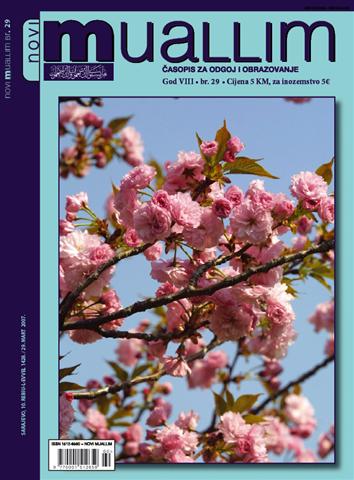ELEMENTS OF DEMOCRACY IN ISLAM
MODERN APPROACH TO GOVERNMENT AND POLITICS IN MUSLIM THOUGHT
DOI:
https://doi.org/10.26340/muallim.v8i29.1050Abstract
Islamic world of the 20th and the beginning of the 21st century is marked by the revival of a political stream of Islam and the challenges that are born with modernism. The interrelation between these two elements led many Muslim thinkers towards deeper study of Islamic understanding of state and the Islamic society as a whole. Today we have more that 120 Muslim countries in the world that choose their governments through democratic elections. To use the words of Muslim scholars, Islam represents at the same time a religion and a state, it is questionable however, whether Islamic state complies with the standards of modern western democracy. We may also ask whether the principles upon which Islamic state is founded are compatible with western conception of democracy. Within this discourse, the author searches for conceptual and ideological bases of contemporary understanding of Islamic state. He reflects upon the thought of Mawdudi, Asad, Iqbal, Ganuchi, Bennabi and Ramadan and their attempts to define new realities and models of Muslim political engagements through reinterpretation of the primary sources of Islamic Law. Author concludes that Islamic elements of pluralism, like counseling, consensus and the use of free opinion are only some of the concepts necessary for articulation of the elements of democracy within the framework of the supremacy of oneness, sovereignty of God and representative duties of a citizen in Islam. Despite the fact that these terms are often subject of questioning, and that problem of the applicability of western stile of democracies on Islam is evident, they still represent useful tools for understanding the relation between Islam and democracy. Whilst the Islamic system of government never really developed to such an extent to present in practice its full democratic potential, officially proposed western model of democracy could have an enormous influence upon the process of democratization in the Islamic world.
Downloads
Published
How to Cite
Issue
Section
License
Naknada:
a. Časopis ne naplaćuje naknadu za obradu članaka (APC) i naknadu za podnošenje članaka.
Autori koji objavljuju u ovom časopisu pristaju na sljedeće uvijete:
- Autori zadržavaju autorska prava i pružaju časopisu pravo prvog objavljivanja, pri čemu će rad jednu godinu po objavljivanju biti podložan licenci Creative Commons imenovanje koja omogućuje drugima da dijele rad uz uvijet navođenja autorstva i izvornog objavljivanja u ovom časopisu.
- Autori mogu izraditi zasebne, ugovorne aranžmane za ne-ekskluzivnu distribuciju rada objavljenog u časopisu (npr. postavljanje u institucionalni repozitorij ili objavljivanje u knjizi), uz navođenje da je rad izvorno objavljen u ovom časopisu.


